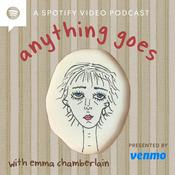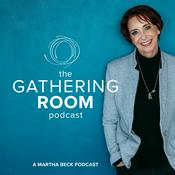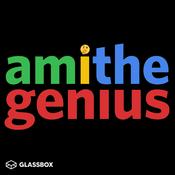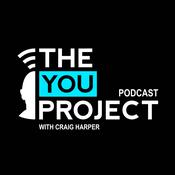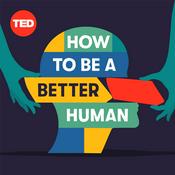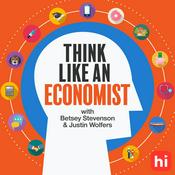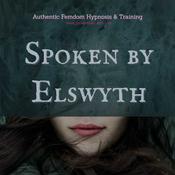30 episodes

S4 E3: Mantra
11/12/2023 | 29 mins.
It seems like everyone, from companies to online influencers to fitness coaches, talk about having mantras. But what are mantras, anyway? In this episode, we'll talk about how they compare to birdsong, Tibetan singing bowls, and spells at Hogwarts, as well as some ancient debates about whether they mean anything, and why that matters. Listen to more episodes of Sutras & Stuff at www.sutrasandstuff.com. Sounds and Music All music excerpts and soundbites used with an understanding of fair use modification for educational purposes. Theme music by https://incompetech.filmmusic.io Kevin MacLeod’s music Lounge Ambient Music Loop by user orangefree sound, posted to Freesound.com on July 8, 2014. https://freesound.org/people/orangefreesounds/sounds/242080/ Tibetan Chanting by user djgriffin, posted to Freesound.com on February 7, 2006. https://freesound.org/people/djgriffin/sounds/15488/ Sources Documentary Educational Resources. “Altar of Fire – Preview.” YouTube video, posted Sept 19, 2008. https://www.youtube.com/watch?v=wvvI3bIAgVA Dictionary.com. “The Meanings Behind “Harry Potter” Spells.” July 29, 2019. https://www.dictionary.com/e/s/rowling-spells/ Grimes, Samuel. “Where Did ‘Tibetan’ Singing Bowls Really Come From?” Tricyle. Mar 4, 2020. https://tricycle.org/article/tibetan-singing-bowls/ McGill University. “Do Birdsong and Human Speech Share Biological Roots?” YouTube video, posted Nov 22, 2017. https://www.youtube.com/watch?v=heMy6dlWvkQ Staal, Frits. “Mantras and Bird Songs.” Journal of the American Oriental Society 105, no. 3 (1985): 549-558.

Announcement - Season 4 Episode 3
03/3/2023 | 1 mins.
Just keep swimming!

S4 E1: Karma
06/1/2023 | 34 mins.
Does what goes around always come around? And is instant karma gonna get you? In the first episode of a season devoted to Sanskrit-to-English loanwords, we’ll examine how three groups of Indian philosophers understand karma: Jains, Buddhists, and Naiyayikas (or Nyaya philosophers). Sounds and Music All music excerpts and soundbites used with an understanding of fair use modification for educational purposes. Drake featuring Bryson Tiller, “Bad Karma” Alicia Keys, “Karma” John Lennon and Yoko Ono with The Plastic Ono Band, “Instant Karma! (We all Shine On)” Taylor Swift, “Karma” Indigo Girls, “Galileo” Culture Club, “Karma Chameleon” Fox News clips: Joey Jones, July 2021 Sean Hannity, August 2017 Theme music by https://incompetech.filmmusic.io Kevin MacLeod’s music Bibliography and Further Reading My YouTube lecture on Milinda’s Questions: https://www.youtube.com/watch?v=_rBqC43PK8Q Bronkhorst, Johannes. Karma. Honolulu: University of Hawai’i Press, 2011. http://muse.jhu.edu/pub/5/monograph/book/1739. Finnegan, Bronwyn. “Karma, Responsibility, and Buddhist Ethics.” In The Oxford Handbook of Moral Psychology, by Manuel Vargas and John Doris, 7–23. Oxford University Press, 2022. McDermott, James. “Kamma in the Milindapañha.” Journal of the American Oriental Society 97, no. 4 (October - December 1977): 460-468. Hermann Jacobi’s translation of the Ācāraṅgasūtrahttps://www.wisdomlib.org/jainism/book/acaranga-sutra

S4 Teaser
16/12/2022 | 1 mins.
Taylor Swift says karma is her boyfriend, and Boy George sings about karma chameleons. In addition to “karma,” there are lots of other Sanskrit terms which have made their way into English: yoga, dharma, mantra, guru, Buddha, swastika, and more. In this season, we’ll focus on one word an episode to get a deeper understanding of what they meant in their original contexts, and how these meanings resonate today. Episodes of Season Four will air the first Friday of every month, beginning January 6, 2023. Subscribe anywhere you can download podcasts. Music & Effects Credits: "Brittle Rille" by Kevin MacLeod Link: https://incompetech.filmmusic.io/song/3460-brittle-rille License: http://creativecommons.org/licenses/by/4.0/ "Karma" by Taylor Swift Excerpts used for educational purposes based on fair use principles Record Scratch by user luffy Link: https://freesound.org/people/luffy/sounds/3536/

S3 E10: Tom Davies
16/6/2022 | 14 mins.
In this episode, I talk with Tom Davies, Seymour Reader in Ancient History and Philosophy at the University of Melbourne, about how understanding Indian philosophy in relationship with the rest of the ancient world helps us reflect on what philosophy is, as a human activity, in different cultural contexts. Note: This is the final episode of the regular season, concluding the series of interviews with philosophers who taught Philosophy and Political Thought at Yale-NUS. Not every philosopher participated, but interviews with all those who did are now available as episodes one through ten. But at least one bonus episode is coming later this summer! Further Resources Tom Davies on Academia.edu: https://yale-nus.academia.edu/TomHerculesDavies Ancient Egyptian Philosophy at Philosophy Now: https://philosophynow.org/issues/128/Does_Western_Philosophy_Have_Egyptian_Roots Hannah Arendt: https://plato.stanford.edu/entries/arendt/ Music Credits: Brittle Rille by Kevin MacLeod Link: https://incompetech.filmmusic.io/song/3460-brittle-rille License: http://creativecommons.org/licenses/by/4.0/
More Education podcasts
Trending Education podcasts
About Sutras & Stuff: A Philosophy Podcast
Listen to Sutras & Stuff: A Philosophy Podcast, anything goes with emma chamberlain and many other podcasts from around the world with the radio.net app
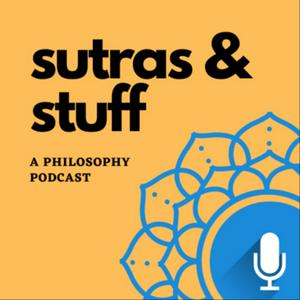
Get the free radio.net app
- Stations and podcasts to bookmark
- Stream via Wi-Fi or Bluetooth
- Supports Carplay & Android Auto
- Many other app features
Get the free radio.net app
- Stations and podcasts to bookmark
- Stream via Wi-Fi or Bluetooth
- Supports Carplay & Android Auto
- Many other app features


Sutras & Stuff: A Philosophy Podcast
download the app,
start listening.
